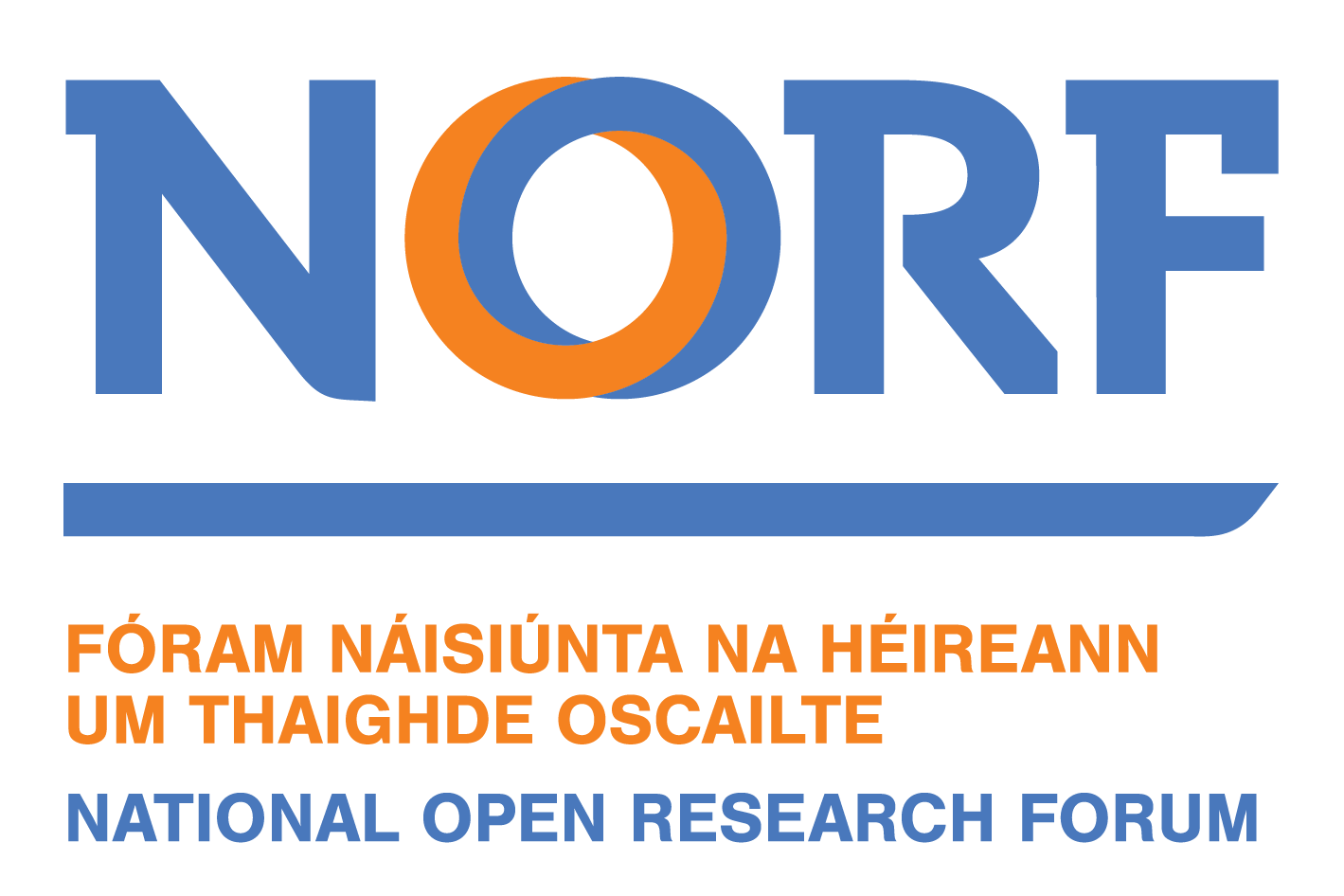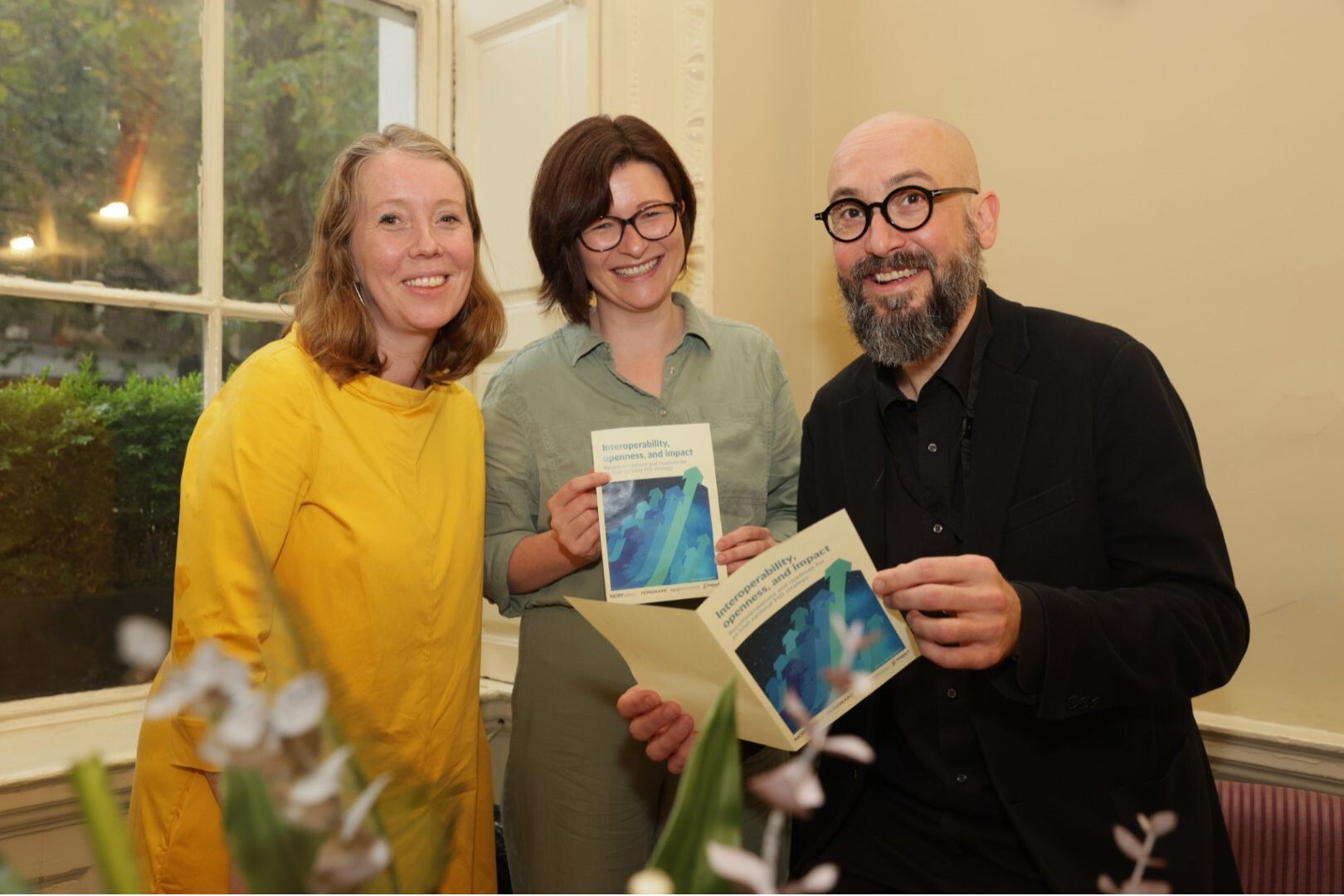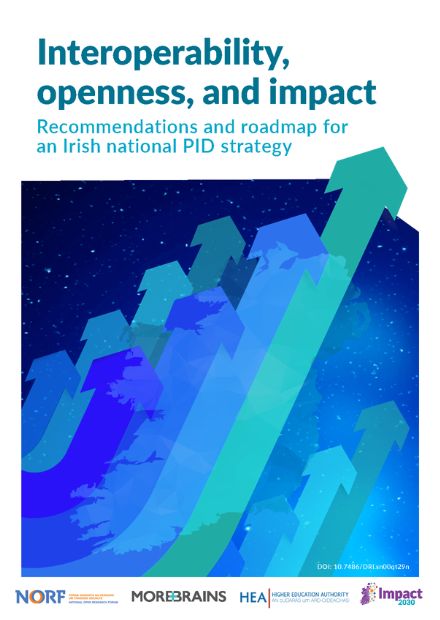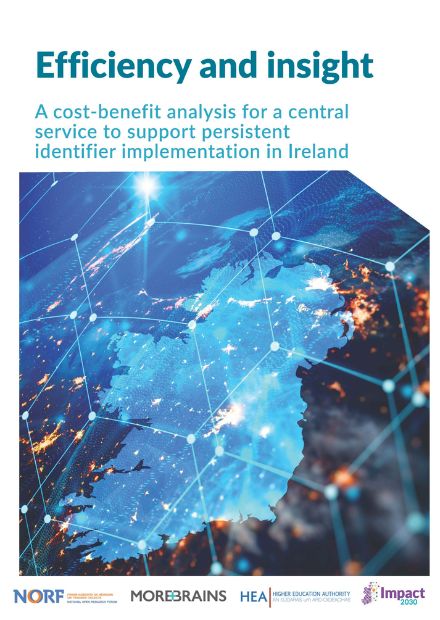On Friday 25 October 2024, the National Open Research Forum launched Ireland’s National Persistent Identifier (PID) Strategy and Roadmap, Impact, Openness, Interoperability: Recommendations and a Roadmap for an Irish National PID Strategy, during a meeting of the nineteen NORF-funded open research projects at the Royal Irish Academy, Dublin.
PIDs are a cornerstone of a modern, digital research system. They uniquely identify entities involved in research, such as grant awards, researchers, instruments, datasets, or publications, and enable structured information about those entities to be shared.
The Roadmap was prepared by the National Open Research Forum (NORF) and the NORF PID Task Force, in consultation with the scholarly communications consultants MoreBrains Cooperative.
Interoperability, Openness, and Impact – Recommendations and Roadmap for an Irish National PID Strategy is published in the DRI Repository, available at DOI: 10.7486/DRI.sn00qt29n
Josh Brown, Research and Strategy Lead and Co-founder of MoreBrains Cooperative, joined NORF in the Royal Irish Academy to launch the National PID Strategy and Roadmap. The launch can be watched below via Vimeo:
Dr Michelle Doran, National Open Research Coordinator, reflected on the launch of the strategy
‘The launch of the National Persistent Identifier Recommendations and Roadmap is a major milestone in strengthening Ireland’s research infrastructure. By providing clear guidance for the adoption and implementation of PIDs across the research community, this roadmap lays the foundation for greater transparency, accessibility, and global collaboration, positioning Ireland at the forefront of modern, open research practices.’
Dr Lisa Griffith, Director of the Digital Repository of Ireland and Chair of the NORF PID Task Force commented
‘This PID strategy was drafted after undertaking a number of national workshops, a survey of the Irish landscape and an analysis of best international policies and practices. It reflects Ireland’s ambitions to support researchers in engaging globally and meeting the highest open research standards.’
Susan Reilly, Director at the Irish Research e-Library (IReL), Maynooth University welcomed the roadmap
‘The launch of this roadmap is a very welcome development. A coordinated approach to the adoption and implementation of PIDs will help to make quality Irish research more visible globally and to better understand its impact and the impact of Ireland’s investment in research.’
The project to deliver this roadmap was initiated in response to Ireland’s National Action Plan for Open Research 2022-2030 which outlines objectives and actions for the next chapter in Ireland’s transition to open research. Detailed information on the National Persistent Identifier (PID) Strategy and Roadmap project is available online.
Implementation of the National Action Plan for Open Research is being overseen by NORF and delivered under Impact 2030: Ireland’s Research and Innovation Strategy. Included in the National Action Plan for Open Research are actions to: invest in persistent identifier infrastructure; support the Irish Open Researcher and Contributor Identifier (ORCID) consortium; and develop a roadmap, in line with international best practice, to boost the adoption of PIDs.
Interoperability, Openness, and Impact – Recommendations and Roadmap for an Irish National PID Strategy presents 15 key recommendations and detailed actions aimed at establishing a more efficient, transparent, and open research ecosystem in Ireland, spanning the period until 2030. The objective is to enable seamless information flow between systems and organisations, reduce bureaucratic burdens, and enhance research transparency and integrity. PIDs underpin this vision as they act as critical bridges between entities.
In addition to the recommendations and roadmap, a cost-benefit analysis of PID adoption in Ireland was also conducted: Efficiency and insight: a cost-benefit analysis for a central service to support persistent identifier implementation in Ireland. This analysis shows that the cost of investing in a central support service, and of implementing PIDs in 25 publicly-funded, research-performing Irish institutions, would be more than outweighed by the time and cost savings generated by metadata re-use. The estimated efficiency gain is equivalent to more than 4,000 days of staff time savings each year, or nearly €1.8M in staff salary and overhead.
Efficiency and Insight: A cost-benefit analysis for a central support service to support persistent identifier implementation in the Republic of Ireland is published in the DRI Repository and available at DOI 10.7486/DRI.nz80kt123.






